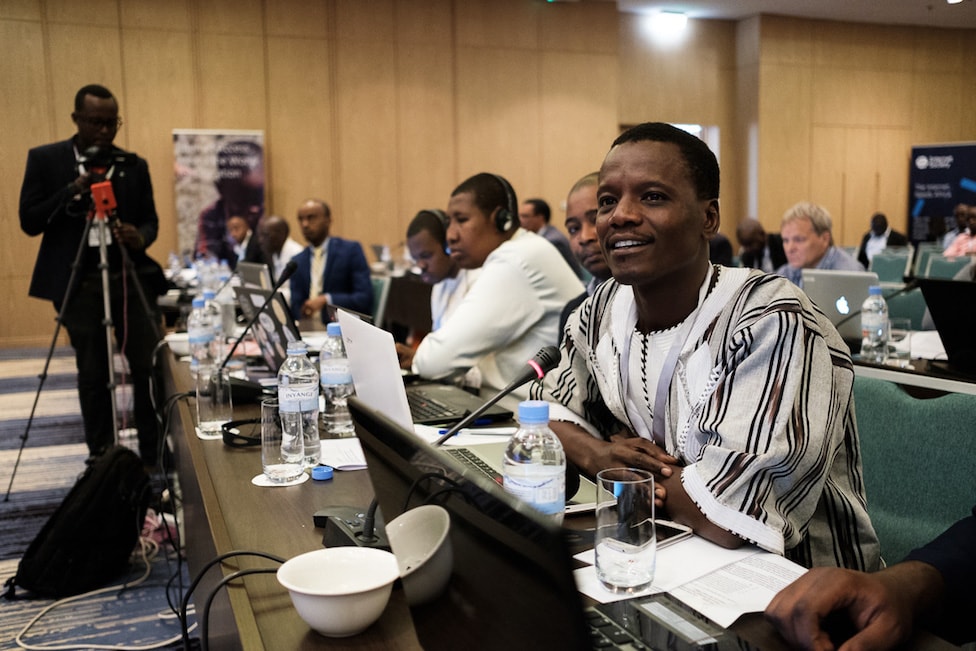Following a successful first day discussing education at the first ever African Regional Internet Development Dialogue (RIDD) in Kigali, Rwanda, day two focused on the broader question on developing the Internet economy in Africa. In a mix of presentations and roundtables, delegates looked at the different challenges and opportunities for expanding the digital economy.
The Internet’s role in supporting economic growth has been recognized by many as a key factor in promoting a sustainable development and fulfilling the global commitments of the UN’s 2030 Agenda for a Sustainable Development. The topic is closely linked to the role of skills and knowledge, creating a natural connection between the discussions on education and the growth of the Internet economy. We see this in regards to innovation, but also in transforming traditional industries to take advantage of the Internet.
One of the key questions is how to not only get individuals online, but also businesses. The positive synergies in terms of increasing the availability of local content and demand for access, while also improving the efficiency of business operations, is a key aspect of this, giving the topic a broader focus than just innovation.
As pointed out in a report by the World Bank the Internet makes up 1.3% of GDP growth in developing regions (World Bank 2016 Digital Dividends, p.55). Of particular importance is to note that 75% of the impact of the Internet on growth is in traditional industries, showing the benefits of the Internet for the entire economy (World Bank 2016 Digital Dividends, p.63). Keeping this in mind, it is important to look at the broader set of policies, ranging from infrastructure investment to e-government services that can facilitate and incentivize businesses to go online.
And as we have seen this week, such efforts benefit immensely from a supportive governance where all of the stakeholders involved can share their concerns and visions. It is the critical third leg of a successful enabling environment for the Internet to grow.
But Africa is also a leader and an inspiration. The innovative startups, and the new businesses that flourish in its path, are all unique and like most innovations, they emerge from a local context to address specific needs. From new solutions to connecting rural areas and providing e-government services in Rwanda to transformative financial services in Kenya (M-PESA). Governments were urged to innovate policies and entrepreneurial visions to keep the ecosystem functional and growing. Africa is already taking leadership that should inspire the rest of the world.
Growing the African Internet economy would require commitments of multiple stakeholders, a clear vision and deliberate policies from Governments to leverage ICTs across all sectors. Institutions of learning especially higher education were identified as catalysts in steering innovation and entrepreneurship growth and that re-thinking education and future of work is critical in growing African economies.
In wrapping up this final day of the first African RIDD we would like to extend our thanks to all the speakers and participants, the Rwandan Government, our partners not least the many participants and presenters that joined us online! who made this event a success. As Africa’s infrastructure and user base grows, the need to coordinate and manage Internet growth and development becomes increasingly important.
View all of the presentations from the African Regional Internet Development Dialogue (RIDD).
See also:

